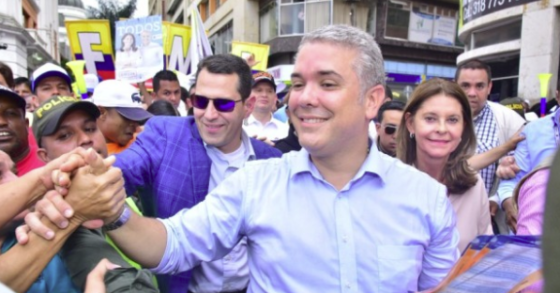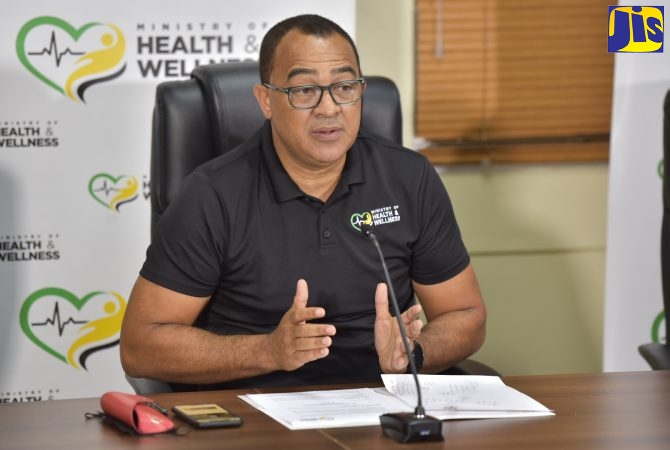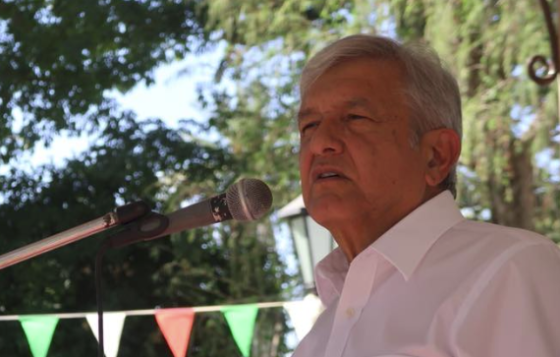
Will Colombia’s New President Deliver on His Promises?
Iván Duque, a conservative former senator, on Sunday won Colombia’s presidential runoff election. What does it mean for the country?
A Daily Publication of The Dialogue
The Covid-19 pandemic has hindered the prevention, diagnosis and treatment of diseases such as cancer in Latin America, according to a recent report from the Americas Health Foundation. In the region, cancer is the second leading cause of death, with more than 700,000 recorded deaths in 2020, according to the report. How well were policymakers addressing cancer care in the region before the pandemic, and what gaps existed? In what ways has the pandemic worsened cancer prevention, diagnosis and care in the region? What best practices for fighting cancer should be shared and replicated more widely? What can public-private collaborations do to address cancer care, and what short- and medium-term investments in health can help the health sector prepare for the next crisis?
Luis Benveniste, regional director in human development for Latin America and the Caribbean at the World Bank: “Cancer control in Latin America and the Caribbean (LAC) suffers from health system weaknesses that have been present for decades: insufficient prioritization of prevention policies leading to a high burden of risk factors; fragmentation of systems leading to health inequities; low public spending in health leading to high out-of-pocket expenditures; a lack of data and information that hinders decision-making at all levels; and poor quality of care leading to worse patient outcomes. We know cancer services have been substantially disrupted during the Covid-19 pandemic throughout the care cycle—screening, treatment, rehabilitation and palliation. Cancer control in LAC could benefit from further strengthening and transforming health systems more broadly. For instance, health taxes could be considered for risk factors such as tobacco, alcohol and highly processed food. Health systems could learn from and sustain pandemic response approaches when public and private sectors operated in a more coordinated manner under the national health authority’s leadership, and extra public funding was channeled to sustain care and prevent further life and economic losses. Quality of care could scale up evidence-based innovations from new technologies but also in health services, for example with navigation programs that take a people-centered approach, giving cancer patients more decision power and guiding them through pathways of care. The Covid-19 pandemic has severely upset cancer control in LAC, but it is presenting a unique opportunity to reform health systems, profoundly and substantially improving it for cancer patients and their families along the way.”
Silvana Luciani, chief of the noncommunicable diseases unit at the Pan American Health Organization: “The impact of the Covid-19 pandemic on cancer care in the Americas has resulted in decreases and delays in identifying new cases and delivering timely treatment. These problems, if unmitigated, will likely increase cancer morbidity and mortality for years to come. While data is still emerging, a PAHO/WHO survey on disruption of health services in Latin America and the Caribbean from April 2021 shows that cancer screening and treatment services were disrupted in 52 percent and 32 percent of countries, respectively. We know that Covid-19 has overwhelmed health systems, which has important implications for cancer care: while data remains limited, patients appear to be more vulnerable to infection, as well as a greater need for ventilator support and higher Covid-19 mortality; diagnosis has been delayed as many countries suspended screening programs, and patients have been more reluctant to present to health care services; treatment pathways have been altered to minimize potential exposure of patients with cancer to Covid-19; and aspects of ongoing care have been deprioritized to enable health systems to respond to the pandemic. Many clinical cancer trials have also been suspended, which has reduced current therapy options for patients who might have participated. PAHO has issued guidance on reorienting cancer services, prioritizing those people with treatable cancer, avoiding cumulative delays in treatment and preventing an increase in avoidable deaths.”
Sarah Aiosa, president for Latin America at Merck & Co. Inc. (MSD): “The last two and half years have taught us some hard lessons. Beyond the direct impact of Covid-19, the pandemic caused major delays and widened existing gaps in cancer diagnosis and treatment. For a disease like cancer, where detection and treatment at earlier stages may offer people the best chance of survival, these delays are likely linked to unnecessary deaths. One key learning is that health and the economy are inextricably linked. Governments that had made sustained investments in health systems were able to quickly vaccinate their populations, and also stabilize and reopen their economies. Similarly, investments in cancer screening, prevention, diagnosis and treatment can reduce deaths and increase productivity. The new cancer laws in Chile, Peru and Colombia, among others, are promising developments, but need to be backed with the necessary funding and investments in innovation. Covid-19 also showed that research and development can only make a difference if these innovations reach patients. And that is why MSD made extraordinary efforts to keep our clinical trials going and maintain the supply of our medicines and vaccines, despite major disruptions. In Colombia, we partnered with the AKOMPAÑAME initiative, which provided transportation so hundreds of cancer patients could keep their routine appointments during the pandemic. Finally, we have seen the value of collaboration, such as our partnership with the City Cancer Challenge to expand screening and diagnosis in marginalized groups in several cities in Latin America. We must all continue to work together across sectors to address the impact of Covid-19 and remove barriers to cancer diagnosis and treatment.”
Maria Fernanda Navarro, regional director, and Martha Ordoñez, technical cooperation officer, both at the City Cancer Challenge Foundation: “Policymakers and local leaders in Latin America were starting to prioritize cancer as a result of it being one of the leading causes of death in the region. Countries such as Chile, Paraguay and Peru have advanced national cancer laws, increasing cancer awareness within government institutions, with the support of local civil society and leaders. Their efforts and hard work have brought the spotlight to cancer, providing the platform for a high level legislative agreement. Cancer is a devastating disease, not only from health related consequences and its effect on the patient and family, but also because of the associated disability and productivity loss, the high cost associated with treatment and the inequities in cancer management and outcomes. Covid-19 has hindered these efforts. The overall effects of the pandemic on cancer prevention, management and palliation are still unknown. In the City Cancer Challenge (C/Can) cities with evidenced decreases in screening and diagnostic testing, there will inevitably be more advanced disease stages at diagnosis and worse patient outcomes. Furthermore, patients in treatment experienced a disruption in their care continuum, especially due to the fear of Covid exposure, infection and lockdowns. The impact of these diagnostic and treatment delays is particularly critical in low- and middle-income countries, which have 70 percent of global cancer deaths. An impact from the pandemic on cancer care was the identification of the need to strengthen overall health systems and the importance of increasing collaborations, funding and available resources to improve population health. Regarding short- and medium-term investments, discussions around access to cancer medicines to help decrease the burden of disease are being held at international venues. Currently, C/Can is actively working on readiness for access to medicines, supporting the strengthening of health systems and improving diagnostic and treatment processes locally.”
 The Latin America Advisor features Q&A from leaders in politics, economics, and finance every business day. It is available to members of the Dialogue’s Corporate Program and others by subscription.
The Latin America Advisor features Q&A from leaders in politics, economics, and finance every business day. It is available to members of the Dialogue’s Corporate Program and others by subscription.
Iván Duque, a conservative former senator, on Sunday won Colombia’s presidential runoff election. What does it mean for the country?
Mexicans go to the polls on Sunday, July 1, for the country’s presidential, legislative and local elections. What can we expect?
Leftist Andrés Manuel López Obrador swept to victory Sunday in Mexico. What changes are in store?
 Jamaican Health & Wellness Minister Christopher Tufton has said that prostate cancer is the leading cause of death for Jamaican men. // File Photo: Government of Jamaica.
Jamaican Health & Wellness Minister Christopher Tufton has said that prostate cancer is the leading cause of death for Jamaican men. // File Photo: Government of Jamaica.

